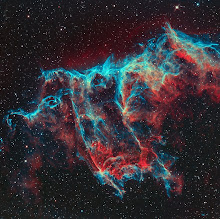It must be made clear that although Mahmoud Ahmadinejad won on 6/12, very little will change in Iran's domestic and foreign policy, especially towards the west and Israel. Naively entertaining the notion that Iran's ailments will go away when Ahmadinejad does is a gross understatement that seems to have plagued Washington think thanks for years. In reality, President Ahmadinejad is merely the spokesperson, enforcer and one can argue, figurehead/puppet of Iranian policy, not its crafter.
The culprit of Iran's increasingly dismal economy, formulation and implementation of Iranian policy is Ayatollah Khamenei, the religious supreme ruler of Iran. Thus, the defensive nature and confrontational rhetoric of Iranian policy will remain intact. However, one can tenably argue that depending on the election results, the packaging in which the rhetoric is delivered would be different.
Mir Hossein Mousavi, the apparent victor of June's election is a more centrist politician than his counterpart Ahmadinejad. The general consensus amongst the international community is that Mousavi would begin to cool the regional temperature in the Middle East and be an easier facilitator of talks with Israel and the west. That may be and is a valuable prize, however the US will still have the long and arduous task of negotiating with Iran its ambitions of its nuclear program.
If Washington wants to reach any sort of good-natured negotiations with Iran in the future, it should continue to keep a keen eye on the protests, the Iranian regime's responses, and stay out of Iranian affairs. Rightly so, Obama has vilified Iranian election malpractice and criticized its handling of the protests as unjust. The last thing Mr. Obama should do is take political sides in the matter. Any public support from a US president will immediately deter Iranian votes and support, labeling the candidate a buddy to the Great Satan, thus making matters worse for the US and its interests.
In that case, Mr. Obama has performed all the right moves so far, however, keeping it up will be difficult. There is a fervent cry from opposition leaders and some democrats in Congress insisting that Mr. Obama be more stringent on berating Iran's inability to inquire into the country's disputed election. Congressional Republicans indicate that Mr. Obama is failing to internationally uphold the US democratic model by denouncing theocracy. But such a hawk-like approach to an extremely delicate situation requires a more dovish mentality and cautious treading which Mr. Obama is doing. The US President understands that the history of Persian-American relations is festooned with mutual suspicion, betrayal and US meddling. Any emulation of such actions on Washington's part will double cross the very concept Obama based the foundation of his campaign on and the international community's expectation of US foreign policy.
Lastly, it is important to point out that Iran is nothing compared to the fascist regime in Nazi Germany or the authoritarian model of Communist Russia. However, the current Iranian model is outdated for this day and age. The arrests of opposition leaders and supporters embodies the all too familiar aroma of a dictatorship masquerading as a democracy/theocracy. Iranians are too avant-garde to be ruled by self-appointed old men whose rule over the country is scholarly and internationally viewed as neosultanism. Women are still second class citizens and the suppression of opposition opinion is illiberal. Furthermore, Ayatollah Khamenei can no longer extricate himself from Iranian political affairs. With his endorsement of Ahmadinejad and open support for his disputed victory, Iran is moonlighting as a state plagued by demagogic cronyism. In this tango, Washington is making the right moves, however, the revolution that Iranian officials tried tirelessly to keep from transpiring has been ironically sparked by its own actions. The west will have to wait and see how it all unfolds.

No comments:
Post a Comment